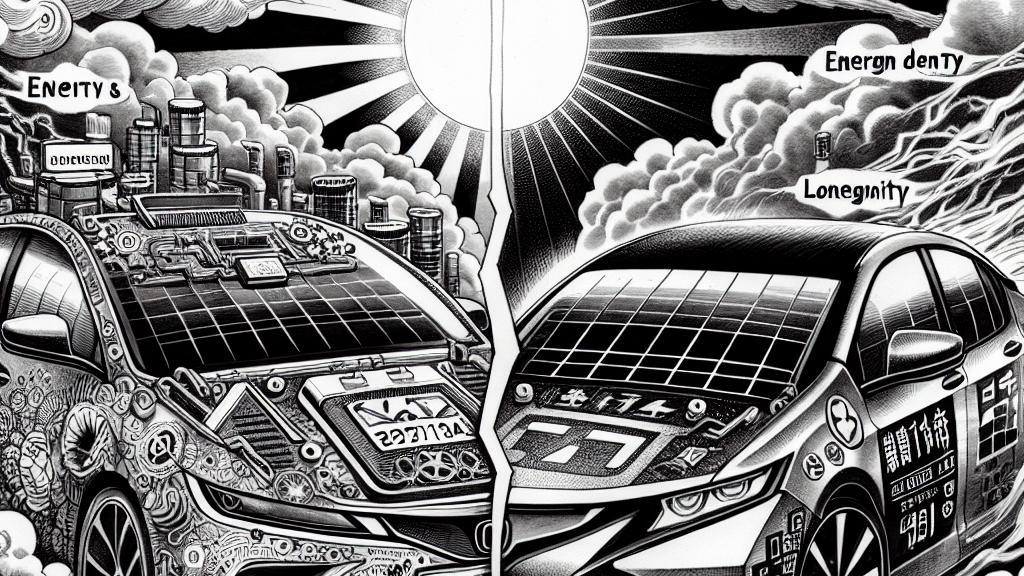Solid-State Showdown: China's Battery Revolution Threatens Japan's Auto Giants!
Overview
- China is leading the development of solid-state batteries, posing a significant threat to Japan's traditional automotive industry.
- Innovative Chinese firms are achieving superior battery performance critical for electric vehicles.
- Japanese manufacturers must accelerate their R&D efforts to maintain competitiveness in the global market.

China's Ascendancy in Solid-State Battery Technology
In recent years, China has rapidly ascended to the forefront of solid-state battery technology, presenting a formidable challenge to Japan's automotive dominance. Companies like BYD and Penghui Energy have introduced cutting-edge solid-state batteries with remarkable performance specifications, such as an energy density surpassing 280Wh/kg and extraordinary longevity, allowing for over 600 full charge-discharge cycles while retaining more than 90% of their original capacity. This innovative approach not only signifies a technological leap but also positions Chinese firms as serious global competitors. In stark contrast, Japanese manufacturers such as Toyota, Nissan, and Honda are still striving to move from research to practical applications of similar technologies by the late 2020s, revealing a critical need for urgency in their development agendas to keep pace with their Chinese counterparts.
Enhancing Safety and Efficiency: The Promise of Solid-State Batteries
The conventional lithium-ion batteries, which have powered electric vehicles to date, carry notable safety risks, particularly due to their flammability in specific malfunction scenarios. Solid-state batteries, offering high energy density—projected to exceed 500Wh/kg—significantly mitigate these risks while providing enhanced longevity and energy efficiency. For example, Panasonic's recent advancements show that their solid-state batteries can charge from 10% to 80% in just 3 minutes, setting a groundbreaking standard for quick recharges. This combination of fast charging and enhanced safety capabilities is crucial for meeting consumer expectations and concerns, ultimately compelling Japanese companies to innovate quickly and potentially revolutionize their production techniques to counter the rapid advancements emerging from China.
Navigating The Competitive Landscape: Japan’s Automotive Sector Responds
Japan’s automotive industry stands at a pivotal crossroads as it strives to navigate the competitive landscape brought on by Chinese advancements in battery technology. Leading automotive giants, particularly Toyota, are increasingly forming strategic alliances with various research and industry partners, indicating a concerted effort to foster rapid innovation and accelerate their development timelines. However, the progress made by Chinese companies raises urgent questions about sustainability for Japan’s automotive sector. As global demand for electric vehicles rises, the race for advanced battery technologies is set to intensify. Japan must therefore enhance its focus on R&D investments, increase agility in production processes, and prioritize collaborative innovations with other tech leaders to secure its footing in this evolving market. The future success of Japan's automotive industry may depend on its ability to adapt and respond swiftly to these unprecedented challenges.

Loading...